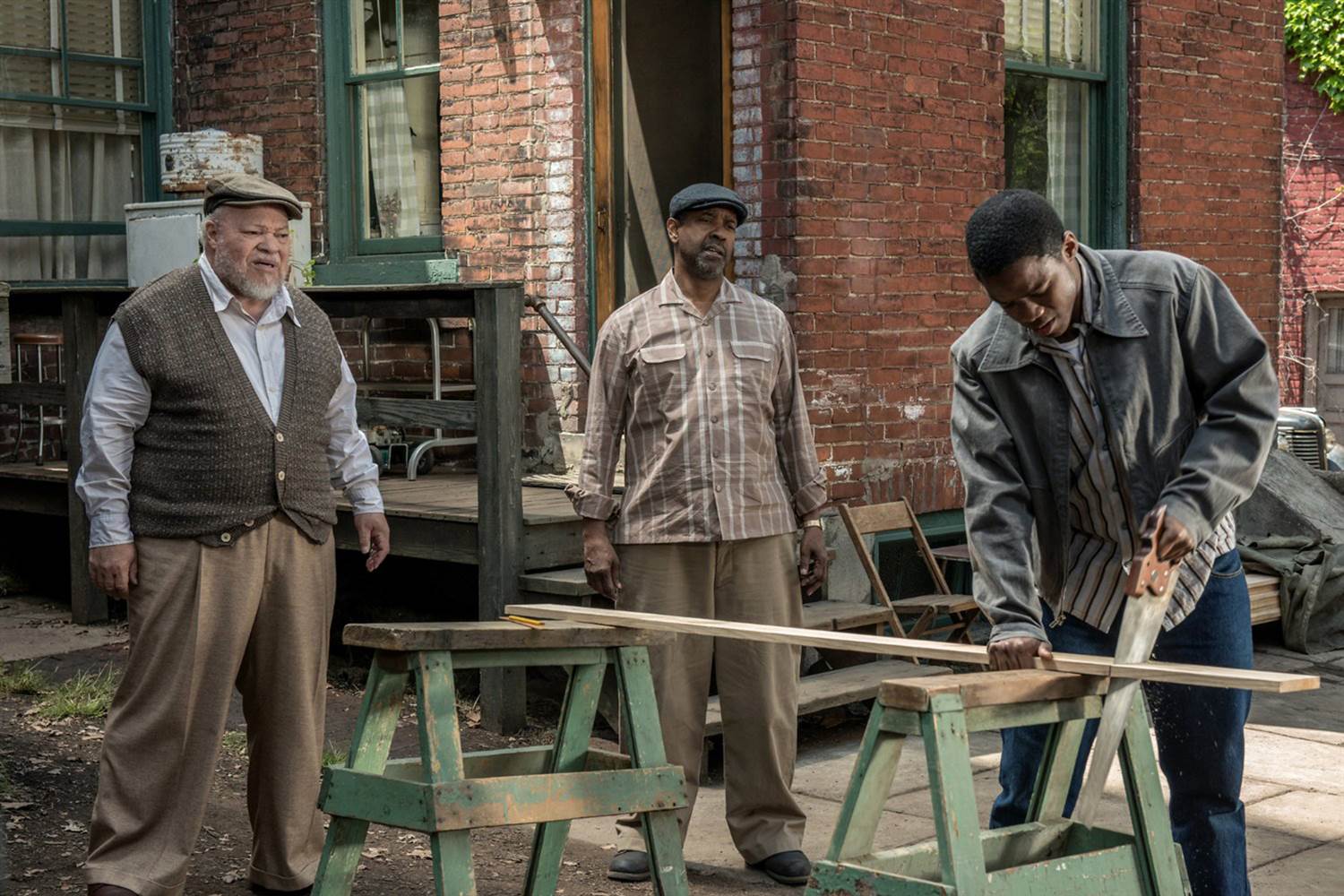The challenge facing Washington as director is how to film all this rhetoric without lapsing into the fitful half-and-half mannerisms of the "filmed play". His solution, and it's an effective one overall, is to keep his camera back, which opens out the frame, allows his actors room to manoeuvre, and the writing and themes room to breathe. What we see on screen never feels like a stage or set, rather the small patch of turf an African-American might have laid claim to in the 1950s, in a neighborhood that might, with another twenty or thirty years of neglect, become a ghetto. Troy is initially positioned as a bulwark against such disrepair: a practical man, who never tires of telling us he doesn't have a pot to piss in ("let alone a window to throw it out of"), he nevertheless insists on paying his debts and keeping his end up. (The title refers to one of the chores he's getting round to with his understandably reticent son.) He is a model of self-reliance - and yet a wreck of a man, for Wilson's project, part of his wider, ten-part "Pittsburgh Cycle", was to dramatise just how hard it is to keep up with such repairs and payments, even with appearances; how tricky it is, after being ground down day after working day, to keep the devil - or any other form of temptation - from one's door.
It wouldn't be an exaggeration to say that Washington has been coasting in recent years, with Antoine Fuqua (Training Day, The Magnificent Seven) as his enabler - the kind of director an ageing A-lister can rely upon to make him look cool, but who isn't likely to come up with anything to challenge him (or us). Here, greying of hair and with a role that allows him to play roughly his age, Washington pushes himself in ways he hasn't on screen for well over a decade. He aces the technical demands of the part - none of this year's other Best Actor nominees will have had more dialogue to memorise, or deliver - while moulding all this verbiage into a complex, difficult character: a man made so defensive by his own struggles - struggles for which he doesn't have the vocabulary, but for which Wilson knows a contemporary audience will - that he can only make everybody else's lives a misery. The risk - as with any production of Death of a Salesman or latterly Jerusalem - is that this towering central figure dwarfs or overshadows the remaining characters, but the space Washington carves out with his Danish cinematographer Charlotte Bruus Christensen (Submarino, The Hunt) allows for supremely valuable contributions in supporting parts, written to demonstrate the power Troy has over those who've fallen under his debatable influence: Davis really does seem to have been waiting to get a word in edgeways for nigh-on twenty years, and makes it count when she does. This is Washington's film, however, never more so than when it finds Troy alone in the backyard of the home his own actions have broken, wondering (and setting us to wonder) whether or not it can still be repaired. In this sudden, deathly silence, Fences assumes a very real - and perhaps surprisingly cinematic - power.
Fences opens in selected London cinemas today, and in cinemas nationwide on Friday 17.

No comments:
Post a Comment